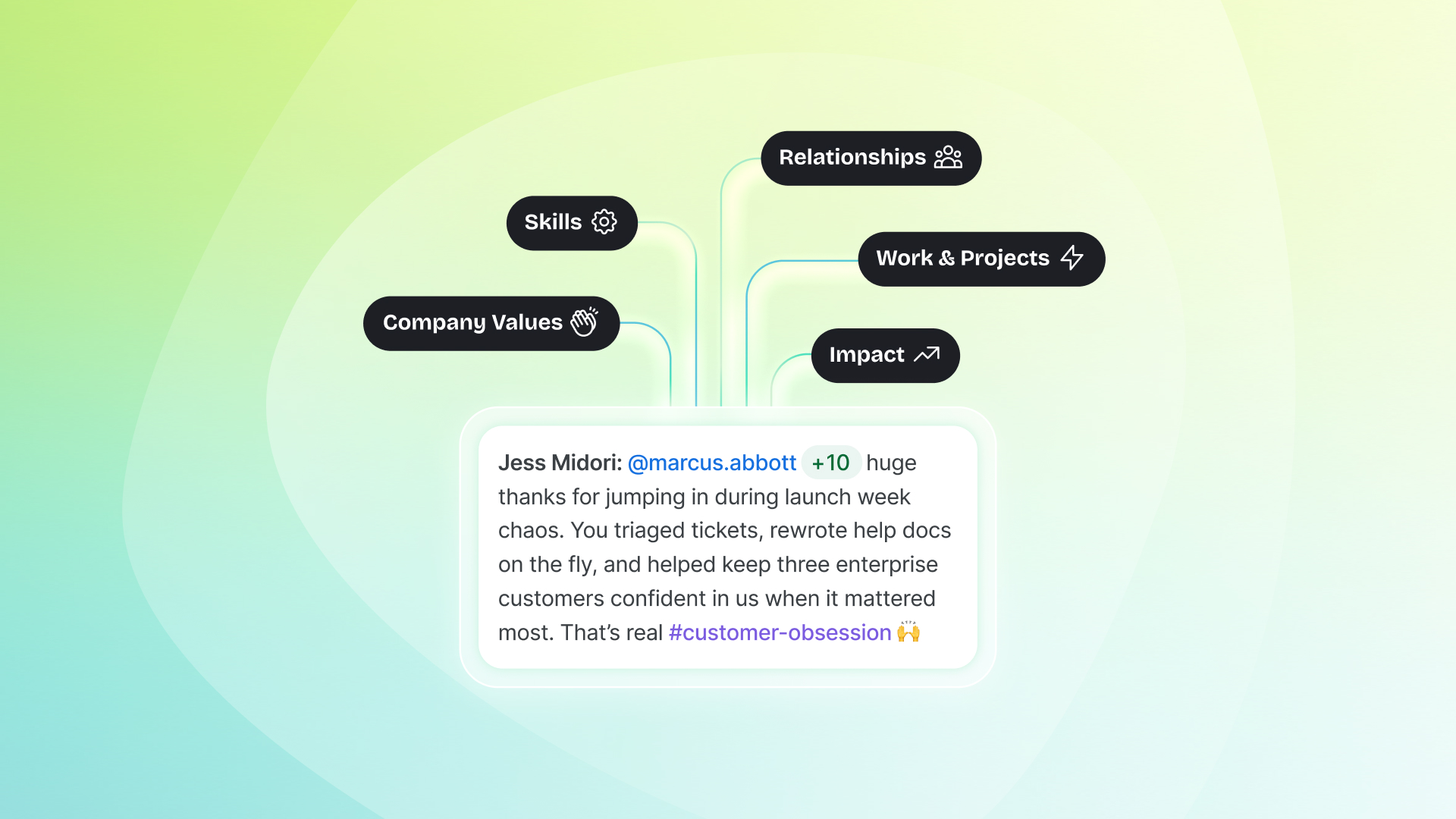Performance Reviews are Pointless. Is There a Better Way?

There’s a well-kept secret among people leaders that few are willing to admit.
Only two percent of CHROs think performance management works. That’s not a typo—I really mean a dismal two percent. And a whopping one-third of the time, traditional performance management and feedback make performance worse.
How did we get here?

The prolonged problem of performance
The uselessness of traditional performance management has long been acknowledged, with organizations like Netflix and Deloitte talking openly about their criticisms a full decade ago. 2014 was a popular time to join the anti-performance management movement, yet most companies still haven’t employed better practices.
But companies and C-suite executives need proof of the return on their biggest investment: their people. Without effective performance management alternatives, they put their faith in backward-facing rating systems that ultimately fail.
Managers and employees, on the other hand, dread the process. I don’t blame them. The current approach is a waste of time and energy and induces anxiety on both sides of that workplace relationship. What’s worse: it orients ratings and feedback firmly in the past and relies on the scattered notes and foggy memories of well-intended but overworked managers to do the job justice. And the HR teams behind the scenes? They’re caught between a proverbial rock and a hard place, spending a significant amount of their time navigating a process they don’t believe in.
Outdated processes and tools only work if your primary concern is to manage or measure historical performance. But most companies care much more about what’s on the horizon—about accomplishing the key objectives of today and tomorrow. When you combine this reality with the seismic shifts occurring in where, how, and why we, as a workforce, approach work, there is an urgent need to intentionally transform this approach.

Paving a better path
So, how do we move forward? It’s been a decade, and while traditional performance management is still the status quo, there are HR teams that believe in their people and are taking a radically different approach. These teams establish a foundation of trust by cultivating strong connections between their company and employees. They create transparency in expectations and open communication so that team members know what “good” looks like. They share great work publicly and recognize the people involved, mobilizing every team member to provide positive and constructive feedback to help each other succeed.
In doing so, they build momentum that translates into better performance, now and in the future. That momentum continues to grow by reinforcing foundational practices that incorporate frequent, high-value check-ins between managers and employees—check-ins where managers coach along the way, celebrate accomplishments and milestones and drive performance as the work unfolds.
The way of the future is an agile, ongoing process that drives sustainable, high performance. It looks something like this:
- Transparency and reinforcement of expectations through public channels where key milestones, wins, and robust examples of employees living the values are celebrated
- A recurring cadence of meaningful meetings between managers and their team members that provide the opportunity to build trust; maintain a constant pulse on progress against goals, key company initiatives, and growth objectives; celebrate wins; and coach through challenges
- Tools that keep managers and employees in the flow of work focused on current priorities and needs
- Actionable insights that leaders and HR can use to support managers and employees achieve their highest potential
When you do this, the review becomes a mere recap, reducing anxiety, minimizing the effort required, and eliminating surprises. And a whole new way to think about performance is born.

The takeaway
So while the vast majority of companies have defaulted to a backward-looking performance management approach with the lack of engagement and mediocre outcomes you’d expect, hope does exist. The results from progressive companies who have adopted agile performance enablement processes built on trust, transparency, and a foundation of habitual positive feedback prove that it’s not only possible to transform into a thriving, high-performing culture, it’s smart business.
If you're ready to learn how Bonusly's leading recognition solution improves your approach to performance management, connect with one of our product experts today. If you want to connect with me personally, say hi on LinkedIn.







